

Speakers

Climate change session
Professor Torkel Gissel Nielsen
After receiving his PhD in 1990 in biological Oceanography, Professor Torkel Gissel Nielsen was employed at the Danish Institute for Fisheries research. From 1991 Professor Nielsen employed as marine biologist at National Environmental Research Institute (NERI), Department for Marine Ecology and Microbiology, since 1994 as Senior Research Scientist and since 1999 as Research Professor. During the employment at NERI, he established extensive research in the arctic biological oceanography, with the overall focus on the structure of the arctic pelagic food web and the climate impact on the pelagic food web. Since 2009, he has been holding a full professorship in environmental biological oceanography at National Institute of Aquatic Resources, Technical University of Denmark. At DTU Aqua Professor Nielsen is leading a group working with Arctic biological oceanography with emphasis on climate impact on the pelagic food web.

Marine invasions session
Dr Argyro Zenetos
Dr Argyro Zenetos is currently a research Director at the Institute of Biological Resources and Inland Waters in the Hellenic Centre for Marine Research (HCMR), with a 32 year experience in the systematics and biodiversity of benthic macrofauna.
Her main area of research since 1997 has been the study of marine alien species. She is the coordinator of the Hellenic network on Aquatic Invasive Species (ELNAIS) (http://elnais.hcmr.gr), consultant to UNEP MAP RAC/SPA for the development of MAMIAS (a Mediterranean alien species database) and National expert in ESENIAS (http://www.esenias.org/) and COST 1209 (Aliens Challenge) (http://www.cost.eu/COST_Actions/fa/TD1209).
Dr Zenetos is responsible for marine alien species in EEA and has developed a HCMR/EEA Pan-European database. She was also a member of the SEBI2010 expert group on “trends in invasive alien species”.
Dr Zenetos was responsible for the revision of the information on marine species of the EASIN Catalogue and has been providing updates for new species and their distribution on a regular basis. Currently she is a member of the EASIN Editorial Board (http://easin-eb.jrc.ec.europa.eu/the-board).

Indicators session
Dr Angel Borja
Angel Borja, PhD in Marine Ecology (University of the Basque Country, 1984) and Doctor in Sciences (honoris causa) (University of Hull, UK, 2015), is Principal Investigator at AZTI, a private non-profit research foundation in Spain. He was previously Head of the Department of Oceanography and Head of the Marine Environment Area. His main work is making marine ecology research useful for policy-makers and managers, studying the effects of human activities on marine ecosystems, monitoring of marine waters and recovery after impact, and developing methodologies to assess the marine status in an integrative way, under European directives (i.e. WFD, MSFD), being some of these methods used worldwide. He is member of the Scientific Committee of the European Environment Agency (since 2012). He is author of more than 180 peer-reviewed papers (Hindex: 42), Editor of Frontiers in Marine Ecosystems Ecology, Journal of Sea Research, Continental Shelf Research and Revista de Investigación Marina, and member of the Editorial Board of Marine Pollution Bulletin, Ecological Indicators and Ocean & Coastal Management. Referee in more than 75 international journals and project evaluation agencies, he is member of different scientific associations, serving as chair in numerous international conferences. He has participated in more than 100 European and international projects, being the coordinator of the 7th FP project DEVOTES (DEVelopment Of innovative Tools for understanding marine biodiversity and assessing good Environmental Status).

Transitional waters session
Professor Angel Perez-Ruzafa
Born in Murcia (Spain) in 1958, BSc in Biology by the University of La Laguna (Canary Islands, Spain) in 1980, and PhD degree in 1989 by the University of Murcia. He is currently Full Professor of Ecology at the Department of Ecology and Hydrology of the University of Murcia. His main research topics are on coastal lagoons ecology, biological indicators, marine protected areas and on the ecology of echinoderms and benthic fishes. He has authored or co-authored 82 books or book chapters and 123 articles in peer reviewed journals, 96 of them included in the core SCI, accounting for an Hindex of 29. His research has been developed through 49 national and international projects at Galapagos Islands, Atlantic Archipelagos (Azores, Madeira, Canary Islands and Cabo Verde), Antarctic and the Mediterranean, being coordinator of the European Commission 6thFP Project EMPAFISH (‘European Marine Protected Areas as tools for Fisheries management and conservation’) and OOCMUR (Coastal Oceanographic Observatory of Murcia) project for the Spanish Ministry of Science and Innovation and the Murcia Regional Government. Former Vice-Chancellor of University Extension and International Relationships of the University of Murcia. He is scientific assessor in environmental management and research projects with European, Spanish and Regional administrations and is referee for 51 peer review journals and 8 national and international agencies and member of the Editorial Board of the journals Marine Environmental Research, Transitional Waters Bulletin, Vieraea and Revista de la Academia Canaria de Ciencias. More than 225 lectures in 152 popular science, postgraduate and PhD courses at nine Universities in Spain and 15 international institutions. Has directed 17 Master degree theses and 16 PhD theses (at the Universities of Murcia, do Algarve and dos Azores).

Special lecture on marine biology and ancient Greece
Professor Eleni Voultsiadou
Dr Eleni Voultsiadou (http://users.auth.gr/~elvoults/) is a professor in the Department of Zoology, School of Biology, Aristotle University of Thessaloniki. After her biology BSc (1977), she graduated with a bachelor’s degree in English language and literature (1985), and got her PhD in Marine Biology from the Aristotle University (1986). She has been teaching for 35 years invertebrate zoology and marine biology at undergraduate and postgraduate levels. She has been doing research on the Mediterranean marine invertebrates (mostly sponges), focusing on their taxonomy, zoogeography, community structure, ecosystem engineering-symbiotic relationships, fisheries biology, and stock assessment. For the last 10 years she has been involved in research on the contribution of ancient Greek language to the international zoological nomenclature, as well as on the history of marine biology and the palaeoethnozoology (i.e. the diversity, distribution, and use of marine organisms in past historical periods) through the study of the ancient Greek literature assisted by the archaeological findings.